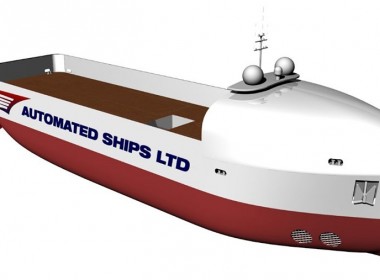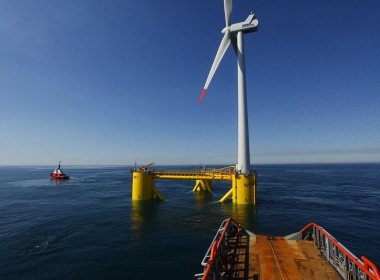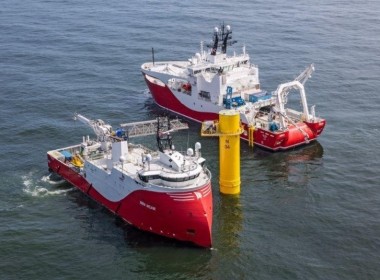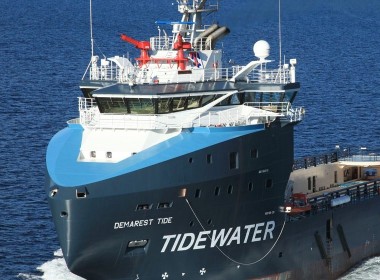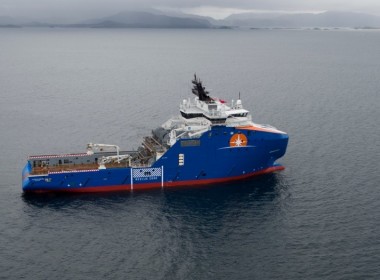COLUMN | Bourbon deadline looms – banks poised to take control [Offshore Accounts]

Tuesday, December 10 saw the transport strike in France against President Macron’s changes to the pension law grind towards its second week, with most trains and buses cancelled, a quarter of Air France’s domestic operations suspended, and the Paris metro completely out of service. 885,000 demonstrators turned out on the streets to protest against the government, in typically Gallic style.
But the commercial court in Marseilles was open for business. And what a busy day it was there, as the court reviewed four proposals to restructure Bourbon Corporation, the world’s largest offshore support vessel operator, and a regular visitor to the court. You can read the background to the company’s judicial reorganisation and insolvency filing in August here
Two bids rejected – Tidewater and Peschaud
Two of the bidders didn’t even turn up and their offers were discarded. Peschaud, a little-known Franco-African logistics company with a long and proud heritage in the oil and gas industry both onshore and offshore, had apparently made a bid for part of Bourbon’s West African crew boat business.
This is undoubtedly a profitable segment for Bourbon and would be a good fit with Peschaud’s Gabonese multi-modal business, but the court and the creditors weren’t interested in minnows looking to cherry pick a few of Bourbon’s prime assets on the cheap.
Tidewater also appears to have also a made a bid, but the proposal has not been made public. Tidewater’s lack of success contradicted the grandiose statements made by its CEO Quintin Kneen a few days earlier at the Louisiana Work Boat Show, where he boasted in a speech that his company was a “consolidation machine,” adept at acquiring newer vessels and scrapping older units, and that he had set the ambitious mission of Tidewater “being profitable”.
Kneen not so keen
The industrial logic of Tidewater buying Bourbon, dramatically shrinking the overhead by forceful headcount and cost reductions, and gaining pricing leverage in the North Sea and West Africa, especially, is compelling.
Unfortunately, I suspect that the problems of the past corruption issues in Bourbon (covered here with the defendants due to return to criminal court in Marseilles in February) will have made Tidewater wary, and that Kneen, like Peschaud, would have preferred to peel off some prize assets, like the modern DP2 PSVs and FSIVs, and leave the quagmire of the debts, the dozens of laid up vessels, and the massive legacy compliance issues for someone else to sort out.
Tidewater itself was fined $11 million in 2010 for a Nigerian bribery scandal involving its Swiss freight forwarder Panalpina, and for various bribes paid to Azerbaijani tax inspectors. Tidewater signed a deferred prosecution agreement with the US Government in 2011, which you can read here. Once bitten, twice shy.
And then there were two
That left just two bidders: Bourbon’s own Chairman, CEO, founder and largest shareholder, the irrepressible Jacques de Chateauvieux, and a bid from Bourbon’s creditors, who have formed an entity called La Société Phocéenne de Participation (SPP) – “Phocéenne” being a synonym for Marseilles (long story).
SPP’s shareholder listing reads like a who’s who of French banking, with BNP Paribas, Crédit Mutuel, Crédit Lyonnais, Natixis and Société Générale all represented. The shareholders in SPP represent 75 per cent of Bourbon’s debt, and SPP’s offer to the court covered all of Bourbon’s assets and activities.
The offer is simple and comprehensive – the conversion of approximately €1.4 billion of debt into equity, with another €300 million of debt converted into repayable bonds, which the banks will probably flog.
The SPP proposal also included €150 million in new bank financing, of which SPP’s shareholder’s assured the court €30 million can be, “released as soon as the transfer of ownership is completed to meet immediate liquidity needs,” thus preventing Bourbon running out of money in the short term. A great relief to its employees, and all its seafarers.
The downside to the offer? All of Bourbon’s existing shareholders will be wiped out. Including Mr de Chateauvieux himself, and his brother. They get nothing. And they don’t appear to have seats in the proposed supervisory board which SPP is proposing to govern the company.
The upside? 75 per cent of the creditors have already given their consent to the plan, and the company would continue in its current form for now, with no redundancies expected.
Jacques de Chateauvieux blocked
And what did Mr de Chateauvieux have to offer to counter this? Unfortunately, the offer submitted on behalf of JS & Co by Jacques de Chateauvieux could not be examined by the court. ICBC Financial Leasing, which supported the SPP offer and had issued the $800 million letters of demand which had driven Bourbon into insolvency in July, refused to discuss a possible agreement with JS & Co. Since this was a condition precedent to its offer, the offer from JS & Co was ignored by the court.
With three bidders out and the SPP proposal the only one left standing, the prospects for Mr de Chateauvieux retaining any control or equity in Bourbon look bleak. Characteristically, he used the Bourbon press office to vent his concerns:
“The court’s decision, if it were to favour the SPP’s offer, would lead to the liquidation of the listed company Bourbon Corporation and a total loss for shareholders and bondholders,” he noted. “It would make Bourbon Maritime’s new shareholders responsible for the recovery of a French company, which is still the world leader in offshore oil and gas marine services, its future development and the preservation of its decision-making centres in France.”
So, what happens next?
The Commercial Court in Marseille will rule on the restructuring plan on December 23. It looks like a slam dunk for the banks and SPP, unless some procedural issue arises to delay the process. Under SPP’s control, Bourbon will, in the short term, be managed by a management board led by Gaël Bodénès, current COO, and Thierry Hochoa, the present CFO, so there won’t be much change at the top after Mr de Chateauvieux empties his desk and goes to spend more time with his family.
With Mr de Chateauviuex gone, the new directors from SPP can expect lots of visitors. Probably new auditors. And probably visits from Mr Kneen and Mr Peschaud seeking to buy their favoured assets from the Bourbon fleet.
The banks clearly don’t want to be shareholders in Bourbon forever, and will be looking to wind down their position in the medium term, with a view to recovering the loans they converted to equity.
If the offshore market picks up, expect a sale to private equity, or an IPO to refloat the company. Expect more piecemeal asset sales, more cost control and a less visionary style of leadership. Which probably isn’t a bad thing in the circumstances.
One thing is clear, the SPP solution provides a turnaround for Bourbon and leaves the company in a much better position. Despite the strikes, the protests and transport shutdowns, the French system appears to have reached a clean and simple American-style Chapter Eleven outcome for Bourbon, something which the Norwegian system has singularly failed to do to resolve the massive debt challenges facing Solstad and DOF.
Good luck to SPP getting court approval in Marseilles, and we must bid Mr de Chateauvieux adieu. However, I suspect, like all shipping magnates, he will be back soon with a bigger and better scheme.


![COLUMN | Bourbon deadline looms – banks poised to take control [Offshore Accounts]](https://www.bairdmaritime.com/wp-content/uploads/OFFSHORE-WEEK-Banner-860x130.gif)
